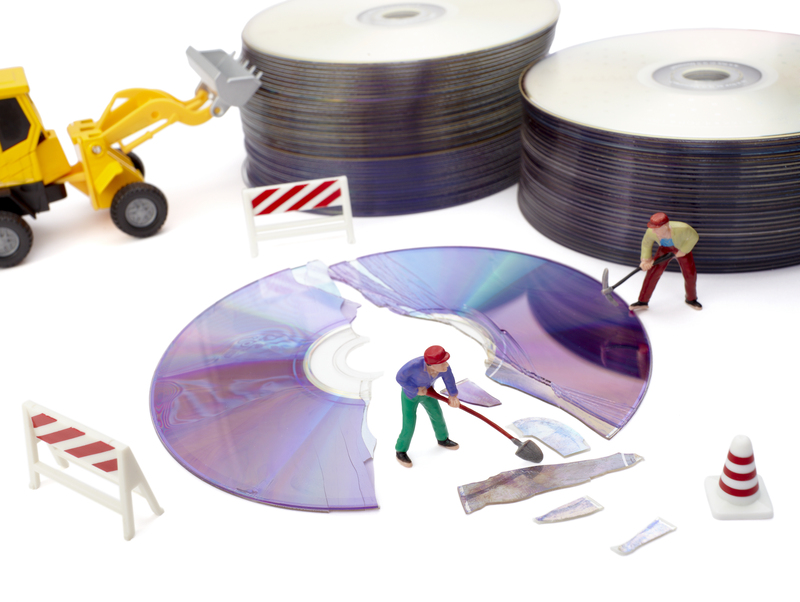Simplify for Serenity: Stress Relief in Decluttering
In today's fast-paced, digital-driven world, it's easy for our physical and mental spaces to become crowded and chaotic. The overwhelming clutter in our homes, offices, and even digital devices can lead to significant stress and anxiety. Fortunately, there is an antidote: simplifying your surroundings for a more serene and peaceful life. In this guide, we explore the profound connection between decluttering and stress relief, and provide insightful, practical tips to embark upon your journey toward serenity.

The Psychology of Clutter: How Does It Affect You?
Clutter is more than just an aesthetic concern; it has direct implications on our psychological well-being. According to multiple studies, excess possessions and disorganized spaces contribute to increased levels of cortisol, the body's primary stress hormone. This constant state of alertness can impact mental clarity and emotional stability.
- Attention and focus: Clutter competes for your attention, making it harder to focus and complete tasks efficiently.
- Anxiety and overwhelm: When your environment is chaotic, your mind is often unsettled too.
- Reduced productivity: Searching for items or feeling unmotivated by a messy workspace can lower efficiency.
- Difficulty relaxing: Constant visual reminders of disorganization make it hard to unwind.
By simplifying and organizing your environment, you create a space for peace and rejuvenation. Let's discover how decluttering aids in stress relief and contributes to a calmer, happier life.
What Is Decluttering, Really?
Decluttering is more than just tidying up -- it's the intentional practice of removing unnecessary items from your environment to make space for what truly matters. It's about simplifying your physical and mental life to foster serenity. The benefits extend far beyond a neat room; it cultivates mindfulness, reinforces discipline, and encourages a minimalist mindset.
- Letting go of the nonessential to create room for tranquility
- Organizing efficiently for better time management
- Developing mindful habits that reduce mental clutter
Benefits of Decluttering for Stress Relief
1. Creates a Calming Environment
A tidy space signals safety and control to your brain, helping you feel more secure and grounded. The act of simplifying your space for serenity fosters a calming atmosphere conducive to rest and relaxation.
2. Improves Mental Clarity
Physical clutter often mirrors mental clutter. When you clear your environment, you're also making way for mental clarity. Decision-making becomes easier, creativity flourishes, and you feel less overwhelmed.
3. Supports Better Sleep
A cluttered bedroom can lead to disturbed sleep patterns. By removing excess items and organizing your sleeping space, you create an oasis of calm that promotes restful, restorative slumber.
4. Enhances Mood & Well-being
A simplified, organized home is proven to support better mood and emotional well-being. You're less likely to feel irritable, anxious, or disheartened with a decluttered environment.
5. Encourages Mindful Living
Decluttering and organizing encourage present-moment awareness. Through this practice, you become more intentional about what you allow in your physical and emotional space, cultivating lasting serenity.
Step-by-Step Guide: Simplify Your Space for Serenity
Ready to start your journey toward stress relief through decluttering? Follow these actionable steps to transform your space -- and your mind:
Step 1: Set a Clear Intention
Begin by asking yourself:
- What do I hope to achieve by simplifying?
- How do I envision my ideal, serene environment?
Step 2: Start Small and Build Momentum
Don't attempt to overhaul your entire home in one day. Focus on the easiest or most frequently used areas first, such as your entryway, desk, or nightstand. Celebrate each accomplishment for lasting motivation and continual progress.
Step 3: Sort, Assess, and Decide
Take each item and ask:
- Do I use it regularly?
- Does it have sentimental or practical value?
- Does it evoke positive emotions?
Step 4: Organize Thoughtfully
Categorize similar items and give each a designated spot. Label storage containers and keep everyday essentials easily accessible. Remember: organization is key to sustaining a decluttered lifestyle.
Step 5: Maintain Minimalism
Practice the "one in, one out" rule. Whenever you acquire something new, ensure you remove something else to maintain balance. Regularly revisit your spaces to keep things simplified and serene.
Decluttering Beyond the Home: Digital and Emotional Spaces
Digital Decluttering for Stress Relief
Our digital lives can be just as cluttered as our physical ones, contributing to stress and information overload. Take these steps to simplify:
- Email Inbox: Unsubscribe from unnecessary lists, delete old emails, and organize important messages into folders.
- Files and Photos: Regularly back up, delete, or organize digital files and photos.
- Mobile Devices: Remove unused apps and organize your home screen for easy navigation.
Emotional Decluttering: Letting Go of Mental Clutter
Decluttering isn't just about your external environment. Mental clutter -- such as persistent worries, negative thoughts, or emotional baggage -- can also weigh you down. Here's how to embrace emotional simplicity for serenity:
- Mindfulness Meditation: Practice mindful breathing to clear your thoughts and reduce anxiety.
- Journaling: Write down thoughts or feelings to externalize and process them more effectively.
- Set Healthy Boundaries: Limit relationships or commitments that drain your energy.
- Seek Support: Reach out to friends, support groups, or professional counselors as needed.
Expert Tips: Making Decluttering a Habit
- Set a timer: Work in focused, timed intervals -- such as 15 or 30 minutes at a time -- to avoid burnout.
- Create a declutter routine: Schedule regular sessions (weekly or monthly) for upkeep and assessment.
- Enlist help: Involve family members or friends for support and encouragement.
- Reflect on progress: Take before and after photos to see tangible improvement.
- Practice gratitude: Appreciate your simplified space and the serenity it brings.
Common Obstacles (and How to Overcome Them)
Even with the best intentions, you may encounter challenges along your journey to stress relief through decluttering. Here's how to address common hurdles:
- "I don't have time!" - Start with tiny tasks. Even 5 minutes a day makes a difference over time.
- "It's too overwhelming." - Begin with one drawer or shelf. Use checklists to help track progress.
- "I might need this someday." - Be honest about what you truly use. Store sentimental items in a memory box.
- "Family or roommates make it difficult." - Focus on your personal spaces first and communicate your goals clearly.
From Chaos to Calm: Real Stories of Serenity Through Simplicity
Thousands of people have discovered the transformative power of simplifying their spaces. Consider these brief accounts:
- Sophia, 35: "After decluttering my bedroom, I finally experienced restful sleep and less anxiety at night."
- James, 42: "Clearing out my workspace improved my focus and made working from home enjoyable again."
- Amira, 28: "Letting go of old keepsakes I no longer needed helped me process past emotions and move forward with lighter heart."
Frequently Asked Questions: Stress Relief Through Decluttering
How often should I declutter my space?
Ideally, aim for a thorough decluttering session annually, with smaller check-ins or organizational tweaks every few months. Incorporate daily "reset" routines, like tidying up before bed, to maintain serenity.
Does decluttering mean becoming a minimalist?
Not necessarily. While minimalism can inspire decluttering, the goal is to keep what truly adds value and joy to your life -- not to live with the bare minimum. It's about intentional simplicity, not deprivation.
Can decluttering relieve anxiety and depression?
While it's not a cure-all, many find that simplifying their spaces eases symptoms of anxiety and enhances mood. If you struggle with persistent stress or depression, consult a professional for comprehensive support.
Is it possible to teach kids or teens the benefits of simplifying?
Absolutely! Involve younger family members by making decluttering a fun, positive activity. Teach them to donate unused items to foster empathy, and explain how a tidy space can help them focus and relax.
Simple Organization Tools to Enhance Serenity
- Clear storage bins for easy identification of contents
- Drawer dividers to separate small items
- Label makers for quick, organized access
- Hooks and racks to optimize wall space
- Slim hangers for streamlined closets

Decluttering as a Lifetime Practice
Simplifying for serenity is not a one-time event, but a lifelong journey. As your needs and circumstances evolve, so too will your relationship with your space. Maintaining serenity is about regularly evaluating what matters most, letting go of the rest, and making room for joy, creativity, and fulfillment.
By embracing the principles of stress relief through decluttering, you reclaim control over your environment and, inherently, your well-being. Start small, celebrate each victory, and savor the peace that comes from living simply and intentionally.
Conclusion: Cultivating Serenity Through Simplification
The journey to serenity and stress relief begins with a single, simple step. By decluttering your physical, digital, and emotional spaces, you pave the way for greater peace, focus, and happiness. Remember, true simplicity isn't about sacrifice; it's about making room for what truly matters, so you can live your calmest, most fulfilling life.
Why wait? Begin your journey to a calmer, more organized, and blissfully serene life today. Simplify for serenity and experience the powerful stress relief that comes from decluttering.